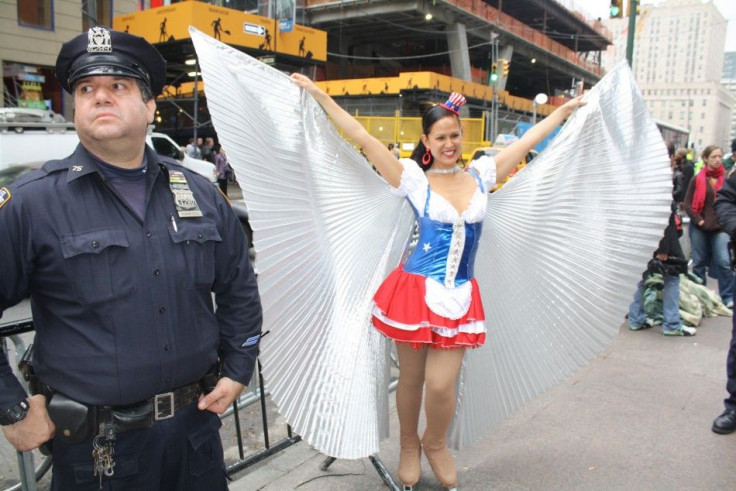Occupy Wall Street Court Showdown This Week
New York Empire

Manhattan's criminal courthouse will be occupied this week by more than 700 men and women who are charged with a committing a range of minor crimes while participating in the ubiquitous Occupy Wall Street protests.
The sheer number of bodies set to appear that day will be a testament to the police's prodigious role in collaring nonviolent protesters - most of whom face summonses for minor crimes such as disorderly conduct.
The city's law enforcement community would like for this week to be a chance for the occupiers to face their punishment for going against the authorities, but it will likely turn into a little more than a freewheeling circus of frenzied media and tenuous accusations.
And, according to attorney Norman Siegal, who served as director of the New York Civil Liberties Union from 1985 to 2000, it is likely that many or all of the arrestees will avoid any real penalties for the alleged crimes, as has happened in past cases of mass arrests of peaceful protesters on minor charges.
With these kinds of situations I always remind people that with peaceful, nonviolent, civil-rights activists engaging in nonviolent protest, I don't see them as 'criminals,' and the criminal justice system should take that into account, Siegal, who serves as counsel for a number of other OWS protesters for reasons unrelated to this week's arraignments, told the International Business Times' New York Empire Monday.
A large percentage of the people scheduled to be arraigned Dec. 14, 15, 16 and 22 - according to DNAinfo - hail from the ranks of the 700 protesters were nabbed Oct. 1 as they attempted to cross the Brooklyn Bridge. Prosecutors told DNAinfo that 1,070 people have been arrested since OWS began in September, and that about 700 summonses have been issued.
Manhattan Criminal Court Administrative Court Judge Melissa Jackson told DNAinfo that she predicts that the scene in court on the days the occupiers appear is going to be a madhouse.
It's going to be interesting how the summonses are going to be handled and we don't have an answer yet, Judge Jackson told the news website. I really don't know what's going to happen.
People who appear in court on minor summonses often take a deal such as an adjournment in contemplation of dismissal, or ACD, which is basically an agreement that your record will be expunged of all mention of the arrest if the arrestee is not arrested for the following six months, according to Siegal. But he said it is likely many protesters will decline ACDs.
When people are presented with it, some people say 'yes,' some people say 'no, I didn't do anything wrong,' Siegal said. I'm assuming they'll offer them the ACD and we'll see whether or not they take it.
Some people will likely take the ACD deal in order to avoid a trial - during which they would be forced to return repeatedly to court - or in order to simply clear their records with minimal hassle.
But many protesters will almost certainly decline the deal in order to prove the valid point that they were not committing a crime by simply peacefully exercising their rights to free speech and peaceful assembly on public property, Siegal said. Also, some career protesters and others who plan to continue participating in protests where they are likely to be arrested will not be so enticed by the 6-month plan.
Anyone who declines any such deals will move on to trials, a result Siegal said could overwhelm the court. The cases could be combined into smaller trials, but the result would still be a massive influx of people repeatedly descending upon the court in coming weeks and months.
After mass arrests were made at a series of protests against the NYPD in the aftermath of the brutal shooting death of Amadou Diallo at the hands of four reprehensible police officers in February 1999, about 1,100 people were slated to appear in court on minor charges similar to the ones the OWS members currently face, Siegal said.
The [District Attorney] eventually dismissed all the charges, and probably one of the elements in the DA's thinking was that the courts can't handle so many cases, Siegal explained.
© Copyright IBTimes 2024. All rights reserved.











